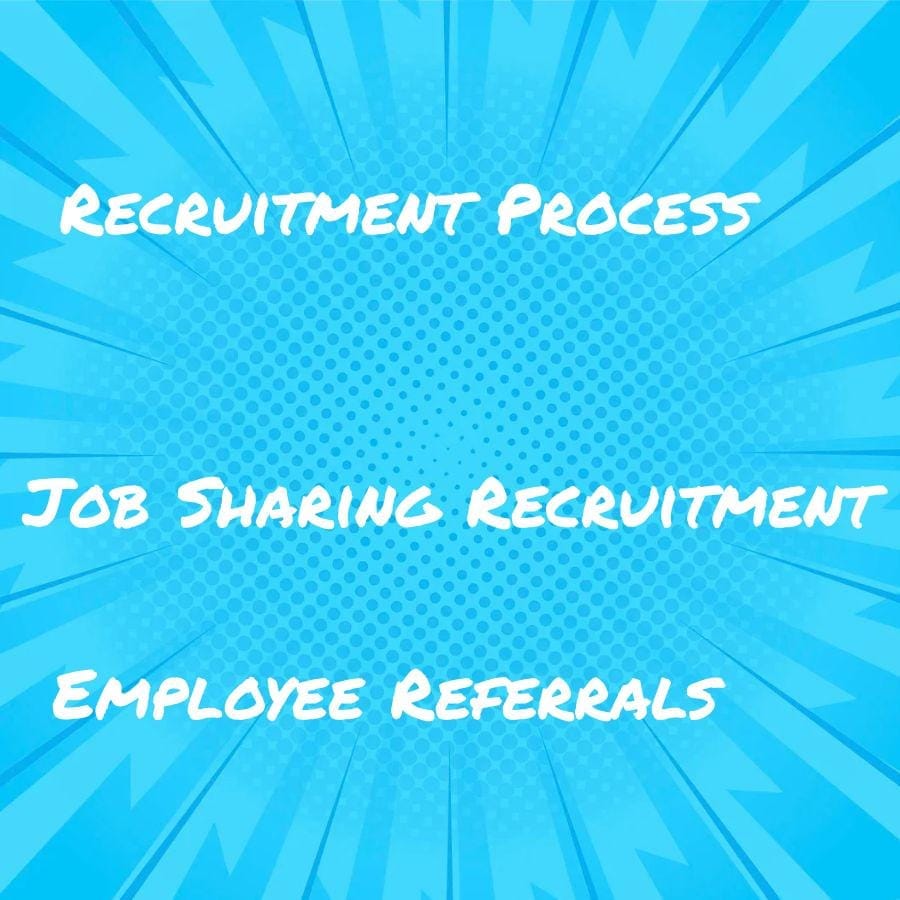Employee referrals play an important role in job sharing recruitment as they can provide valuable insights into the job and help to identify potential candidates who may be a good fit for the position. Additionally, employee referrals can help to build trust between recruiters and potential candidates, which can lead to more successful hires.
Employee referrals are becoming an increasingly popular way for companies to recruit new employees. Referred candidates are often more successful in the hiring process, resulting in better hires and improved retention rates.
But what role do employee referrals play in job sharing recruitment? In this blog post, we’ll explore the benefits of using employee referrals for job sharing recruitment and how to get started with your own referral program.
Benefits of Employee Referrals

When an employee refers someone for a job, it is seen as an endorsement of the candidate’s skills and abilities. This can be beneficial to both the employer and the referred candidate.
For employers, employee referrals can save time and money in recruiting efforts since they already have some knowledge of the referred candidate’s qualifications. Employees who refer candidates tend to be more invested in their success since they have recommended them for the position.
This often leads to higher retention rates among referred employees compared to those recruited through other methods. For candidates, being referred by an existing employee gives them a leg up on other applicants because employers may view them as more reliable than those found through other means such as online postings or job fairs.
Referred candidates also benefit from having access to insider information about company culture that can help them make informed decisions about whether or not they want to pursue employment with that organization. Overall, employee referrals are a valuable asset when it comes to job sharing recruitment because they provide employers with qualified candidates while giving potential hires insight into what it would be like working at that particular organization.
Challenges Associated With Employee Referrals
However, there are some challenges associated with employee referrals that employers should be aware of. One challenge is that the referral process may not always yield the most diverse pool of applicants.
Since employees tend to refer people who have similar backgrounds and experiences, this could lead to a lack of diversity in the workplace. If an employee refers someone who is unqualified or unsuitable for the job, it could create problems for both parties involved and damage relationships between them.
Relying too heavily on employee referrals can limit creativity in hiring processes and reduce access to new talent pools outside of existing networks.
Impact On Recruitment Process
They can have a significant impact on the recruitment process, as they provide employers with access to a larger pool of potential candidates and help to reduce the time it takes to fill open positions. Employee referrals also offer employers the opportunity to gain insight into how well-connected their current employees are, which can be beneficial when looking for new hires.
Employee referrals often result in higher quality hires due to the fact that current employees are more likely to refer people who they believe will be successful in their roles. Employee referrals can help build relationships between current and prospective employees by providing an introduction prior to any formal interviews or hiring processes taking place.
Cost Savings for Employers
When an employee refers someone they know, the employer saves money on recruitment costs such as advertising and interviewing expenses. Since the referred candidate is already familiar with the company culture, there is less time and effort needed to onboard them into their role.
This can result in significant savings for employers who use employee referrals as part of their job sharing recruitment process.
Quality of Hires Through Employee Referrals
Employee referrals can be especially beneficial when it comes to finding quality hires, as the referring employee is likely to have a good understanding of the skills and qualifications needed for the role. This means that they are more likely to refer someone who is well-suited for the position, rather than just anyone who might fit the job description.
Because employees tend to refer people they know personally or professionally, there is often already an established relationship between them which can help ensure that both parties will work well together in their new roles. Employee referrals also provide employers with access to a larger pool of potential candidates than traditional methods such as online job postings or newspaper ads may offer.
Employee Engagement in Job Sharing Recruitment Process
<p>Employee engagement is a key factor in the success of any job sharing recruitment process. When employees are engaged and actively involved in the recruitment process, they can provide valuable insights into potential candidates that may not be available through traditional methods such as online job postings or headhunting.By engaging employees in the recruitment process, employers can gain access to a larger pool of qualified applicants who have been recommended by their peers. Employee referrals often result in higher quality hires since these individuals have already been vetted by someone within the organization and are more likely to fit into the company culture and work well with existing team members.
Employee referrals also help to reduce recruiting costs since there is no need for expensive advertising campaigns or headhunting fees when relying on internal recommendations from current staff members.